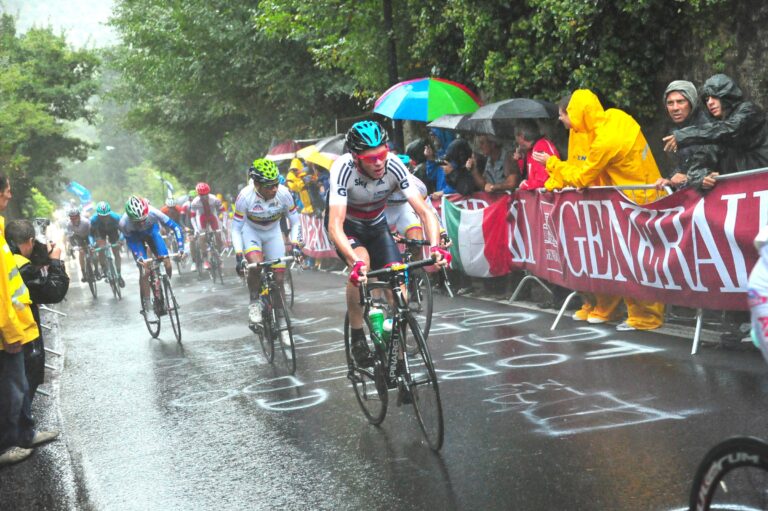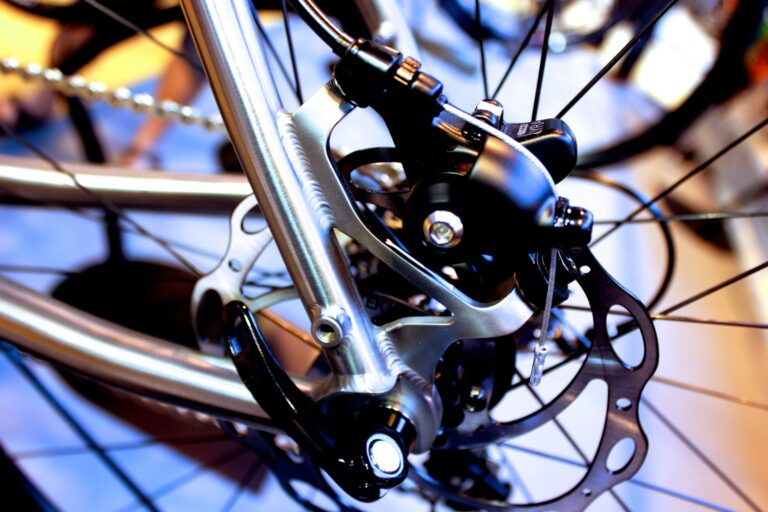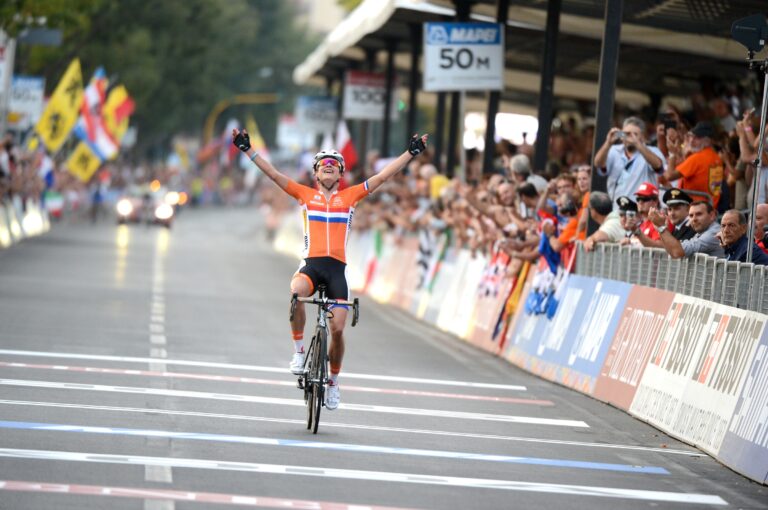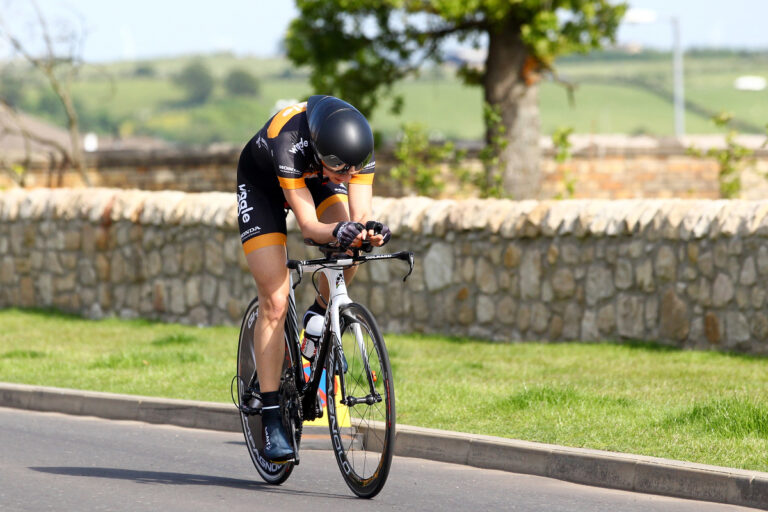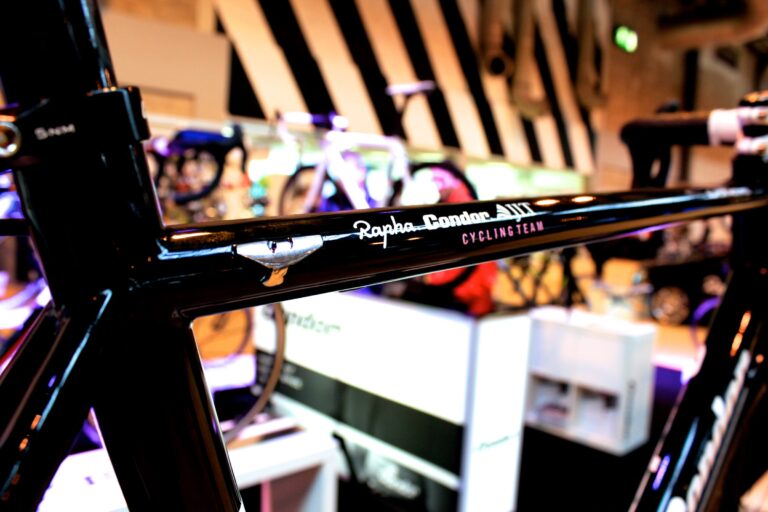Orbea have unveiled what they are calling the ‘most versatile bike ever’ thanks to the combination of a mudguard-ready carbon fibre frame compatible with either disc or rim brakes, routing for mechanical or electronic shifting, and room for 28mm tyres.
Is this the future of carbon fibre, mass market road bikes? Orbea told us they estimate the Avant’s target consumer to represent 60-70 per cent of the market – and for that figure to only grow as cycling’s stock continues to rise.
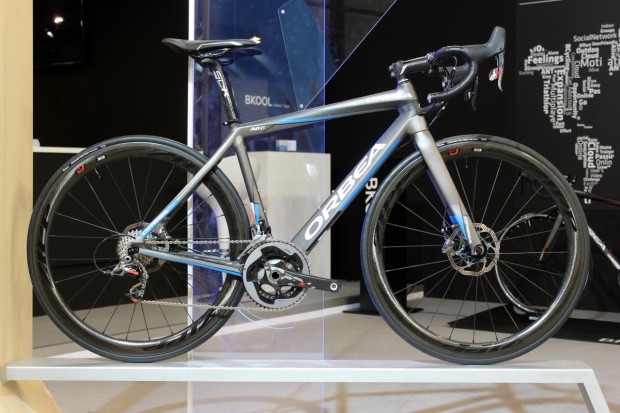
The Orbea Avant is a bike in the sportive/endurance/comfort mould (choose your pigeon hole) and has a geometry more relaxed than that of the Basque firm’s race-ready Orca, ridden by the Euskaltel-Euskadi team.
The Avant’s geometry has been based around what Orbea call a ‘stack and reach’ concept, with a slightly taller headtube and shorter toptube than the Orca, with the stack and the reach growing proportionally as you move through the seven sizes (47 to 60cm). The Avant uses two different forks, with the smaller sizes (47, 49 and 51cm) having a 53mm rake and the bigger sizes (53, 55, 57 and 60cm) a 43mm rake.
Thirteen models make up the range, six based around an aluminium frame and seven built around a carbon frame, with prices ranging from £679 to the £8,099 SRAM Red 22-equipped machine pictured above.
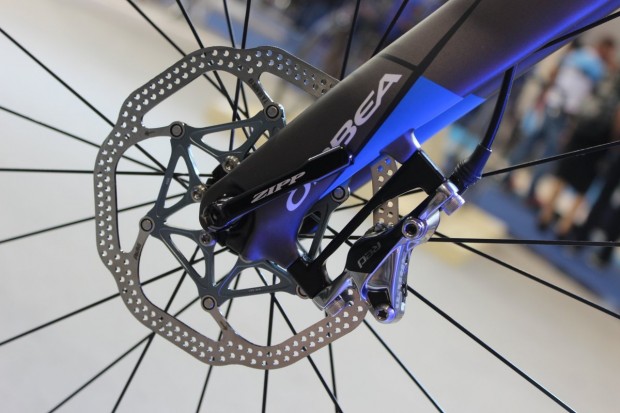
Aluminium or carbon aside, Orbea have used the same frame design regardless of whether the bike is built with rim or disc brakes. With that in mind, the Avant’s rear dropouts naturally accept a 135mm hub, the standard size for a disc-specific wheel, while two 2.5mm ‘chips’ can be bolted to the dropouts to convert the frame to the 130mm road standard.
Each frame can take either rim or disc brakes, so you can switch from one to the other. The front rim brake is fitted using a traditional single-bolt mount on the fork, while a two-bolt rear brake mount is hidden under the chainstays to hide it from the wind.
Speaking of which, the frame has a subtle aerodynamic flavour, with a narrow frontal profile and an aero-shaped downtube. One of the oft-touted drawbacks of disc brakes is aerodynamics but Orbea say they took the Avant to the wind tunnel and the difference between disc and rim brakes was “negligible”, with discs even proving more aerodynamic at some yaw angles.
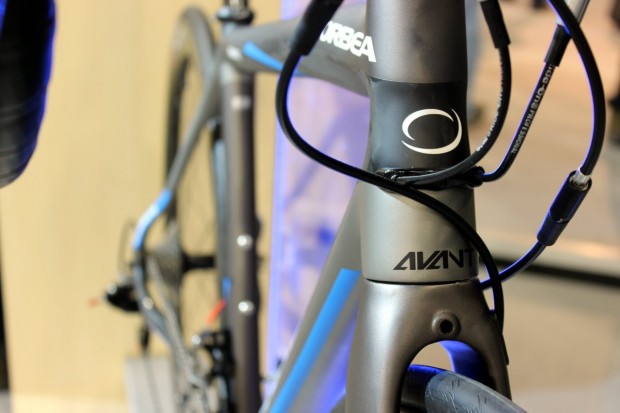
Other frame features include a PressFit bottom bracket, and internal cable routing compatible with mechanical and electronic groupsets thanks to a headtube-mounted cable guide. The mudguards and rack mounts are also neatly integrated with the frame.
Orbea say the carbon fibre layup has been tweaked to provide a more comfortable ride, while they have chosen to use a 27.2mm seatpost – the ‘go to’ diameter to boost comfort as a seatpost with a narrow diameter offers more flex.
Claimed frame weight is 1,100g which, while by no means featherweight by today’s standards, can provide the basis for a light machine in the right spec. Orbea say the top of the range model, with SRAM Red 22 and Zipp Firecrest 303 hoops, weighs approximately 7kg.
Orca celebrates tenth anniversary
Meanwhile, the Orca was Orbea’s first carbon fibre frame when originally launched in 2003 and this sixth iteration celebrates the tenth anniversary of the firm’s flagship model.
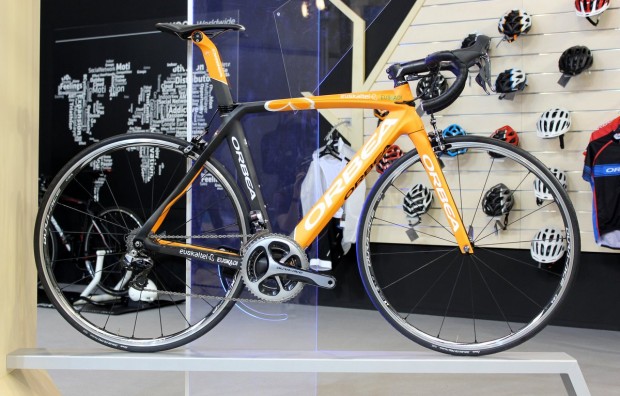
Orbea say the latest Orca is seven per cent more aerodynamic than the previous version thanks to a reduced frontal profile, revised tube profiles (the downtube is more aerodynamically-profiled than the previous iteration) and a new fork which has incredibly thin legs inspired by the Ordu time trial bike. The new frame is also said to be eight per cent stiffer and ten per cent lighter than the previous Orca.
Claimed weight for the ‘Race’ frame (the model ridden by Euskaltel-Euskadi) is 950g, which makes it one of the heavier bikes in the WorldTour peloton. The frame is also available in a more affordable ‘Performance’ version with a 100g weight penalty.
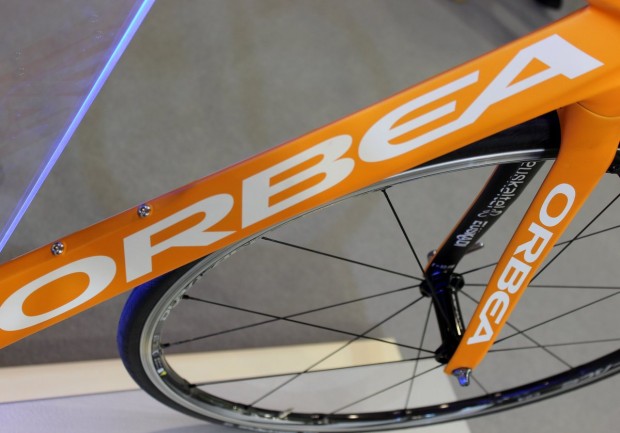
Like the Avant, the Orca is sized according to stack and reach, rather than toptube length, as is traditional, with the frame offered in seven sizes from 47 to 60cm. Again, Orbea use a fork with a 53mm rake on the three smaller sizes and a 43mm rake on the four larger sizes.
The model year 2014 Orca will be available in seven builds from £2,159 to £8,699, with the team replica model, in distinctive Euskaltel-Euskadi colours and dressed in Shimano Dura-Ace and the Japanese component manufacturer’s super-light C24 wheels, priced at £7,399.
Website: Orbea


